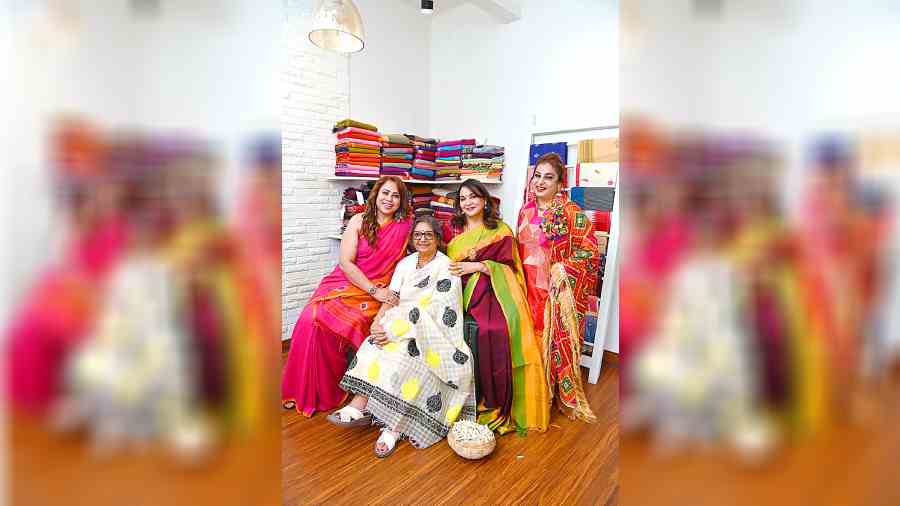Twine Tales, a fashion den in Hindustan Park, is celebrating Baisakh with its special monthlong Spring Edit. To celebrate the month leading to the first day of the Bengali New Year or Poila Baisakh, Sanhita Moulik, the owner and curator of the store that supports the weaving community and promotes handcrafted apparel and accessories, is displaying a curated collection of handcrafted saris from four states of India that celebrate the month of Baisakh.
The celebration of Baisakh that happens in Punjab as Baisakhi, Bohag Bihu in Assam, Puthandu in Tamil Nadu and Poila Baisakh in West Bengal, is being represented through the new collection of textiles at the store. The exquisite collection has a variety of handcrafted phulkari dupattas, cotton mekhela chador, south cotton saris and kantha-stitched cotton saris from Punjab, Assam, Tamil Nadu and West Bengal, respectively.
“We are thrilled to launch our Spring Edit with such talented and respected women of the city. Calcutta has always been a melting pot of cultures, a cosmopolitan city in the truest sense. I am extremely grateful to celebrate the different customs of the states of Assam, Punjab, Tamil Nadu and West Bengal through Twine Tales. Textiles are our heritage and also help carry forward our legacy and this coming together of artisans is a great privilege. I welcome all my patrons to come and experience these cultures through their clothing and take pride in encouraging weavers and empowering the artisans through the support of their craft,” said Sanhita. Snapshots from the launch of the exhibition:
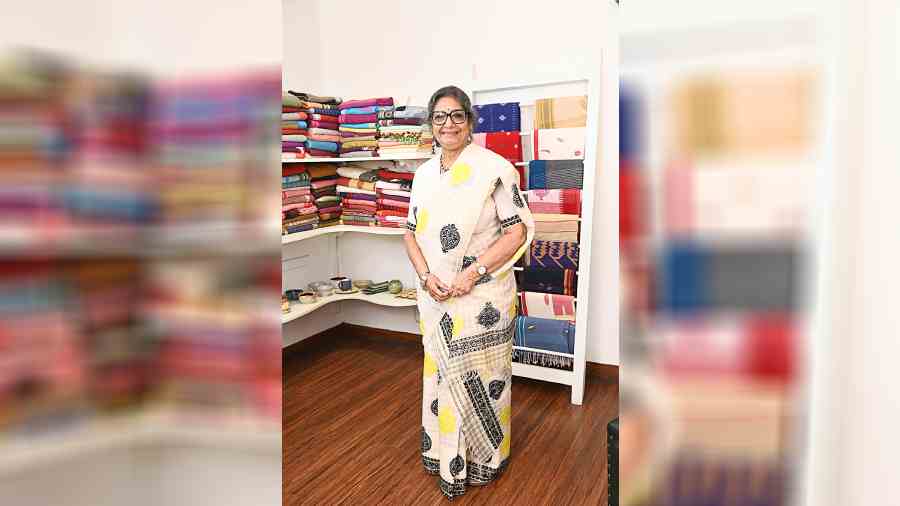
Sampa Das came dressed in a cotton mekhela from her collection. Her fivedecade journey in reviving the rich silk variety of muga took her to Sualkuchi, a hamlet near Guwahati, where she worked closely with the weavers and made it appealing with her design inputs. “I had a wonderful time meeting Sanhita, Sheela and Gunnu today. We are all textile lovers and understand the need to support handloom. I love to wear the mekhela chador and feel it is much more convenient to drape than a sari. It is ideal for teenagers and young adults because the skirt can be easily worn. The mekhelas at Twine Tales represent the traditional motifs of Assam and bring freshness to the store’s Spring Edit,” said Sampa.
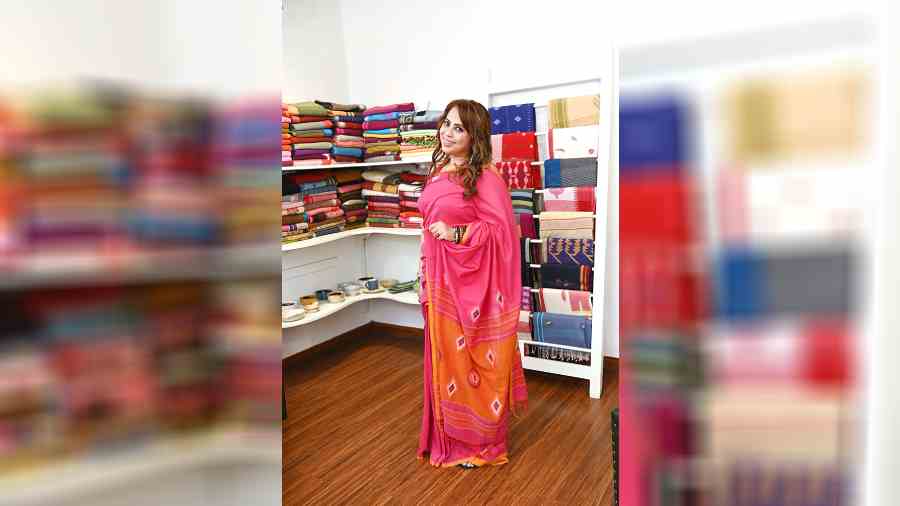
Sanhita Moulik, owner and curator of Twine Tales, represented the Nava Varsha celebration in Bengal. She wore kantha on the launch day. “Started to support the weaving community during the pandemic, Twine Tales evokes slow living through a conscious sustainable lifestyle. For Nava Varsha, we commissioned a self-help group of rural Bengali women to make kantha designs of fish, flora and geometric patterns on comfortable cotton saris, perfect for the sultry weather. Also, a new collection of taant cotton saris, Phulia jamdanis, matka silks and muslins will be available,” said Sanhita.
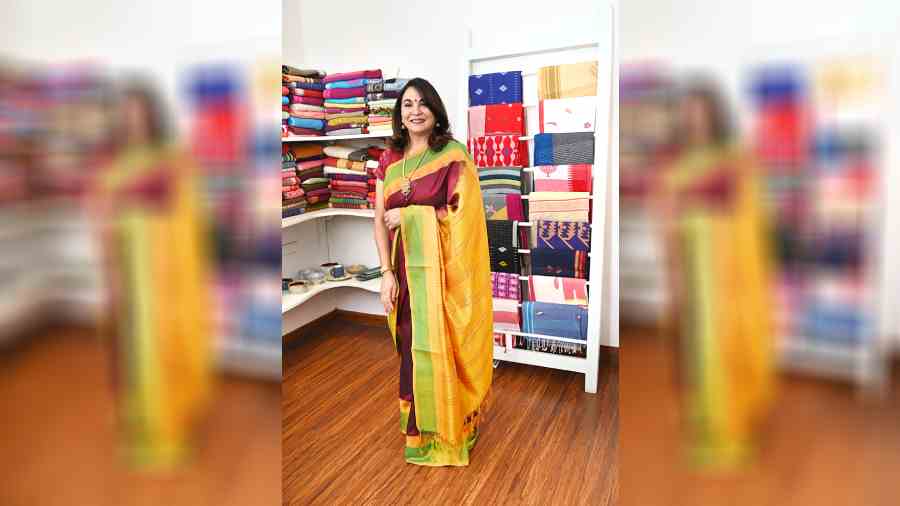
Sheela Janakiram, president of the Rotary Club of Calcutta Avyanna, wore a south cotton sari. Born into a Tamilian family, she grew up in multiple cities across India, being in an Army family. Her work involves community upliftment and supporting many sustainable projects. “The Tamil New Year or Puthandu is a very auspicious day for us. This day usually falls around the same time as the Bengali New Year. It is a day of worship, feasting and festivities. Wearing a new sari is one ritual I always observe and a south cotton sari has been my regular companion. At Twine Tales, I felt the Spring Edit is a great culmination of different cultures and gives the buyers a wide choice in the range of saris. I loved the south cottons in vibrant colours on display,” said Sheela.
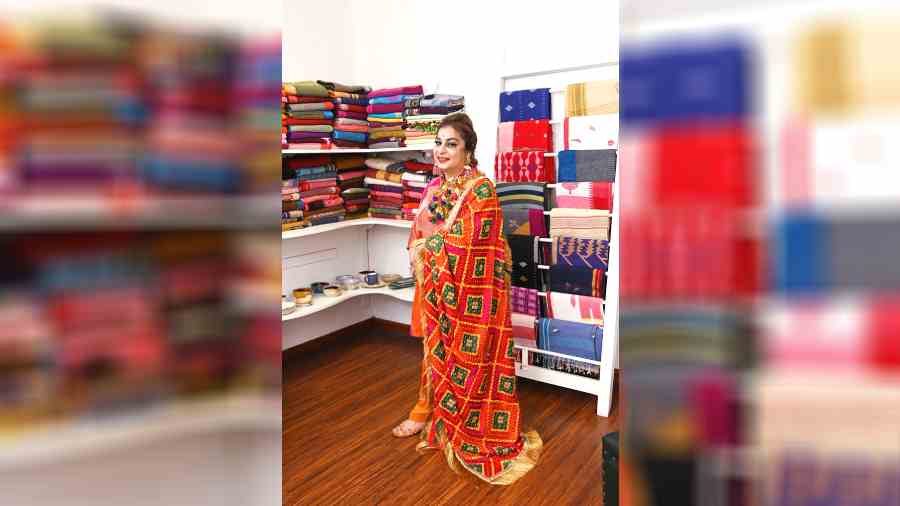
Gunnu Ahluwalia, whose cosmopolitan upbringing was rooted in Punjabi traditions, recalled her experiences of the Baisakhi, a celebration of the spring harvest. “On Baisakhi day, as a young girl, I dressed up in my colourful phulkari suit, paranda in my hair, wore my crafted juttis and went to the community fair and thoroughly enjoyed the lights, the food and the festivities. The day is also marked by listening to the spiritual songs of the Ragi Jatha (Sikh Kirtan group) and the distribution of langar. These memories of family and togetherness continue to be the main attractions of Baisakhi to me even today,” she said. She was dressed in a phulkari kurta with patiala salwar and a heavy phulkari dupatta, accessorised with handcrafted juttis and a pretty golden paranda. “The essence of Baisakhi in Punjab is in the display of bright colours. I am elated to see that Twine Tales is showcasing this beauty of phulkari through the dupattas for their patrons to explore and celebrate traditional art forms,” added Gunnu.
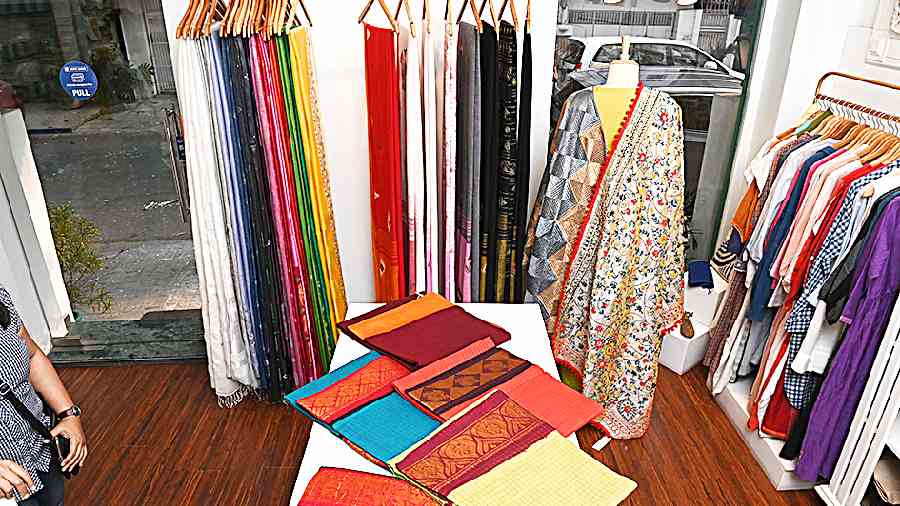
Pieces from the new collection of vibrant south cotton saris.
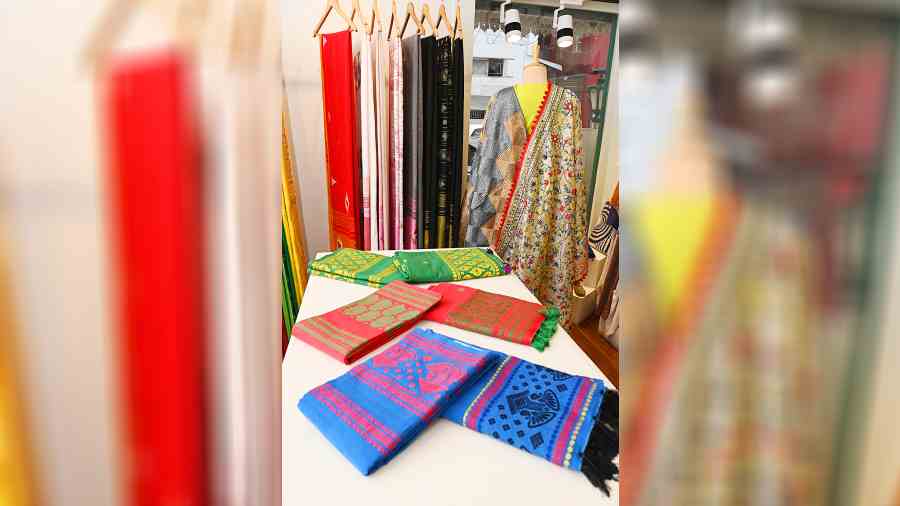
A display of mekhela chador on the table and phulkari dupattas on the mannequin.
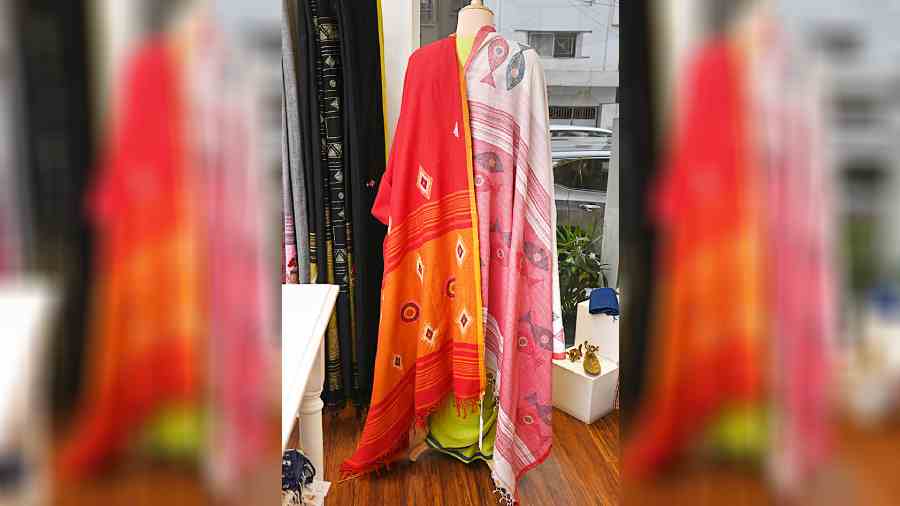
A display of cotton kantha sari at the store.
Pictures: Rashbehari Das


